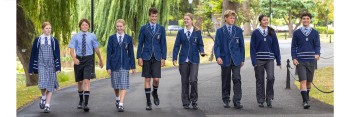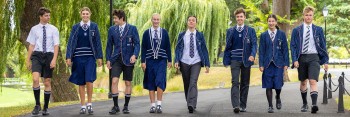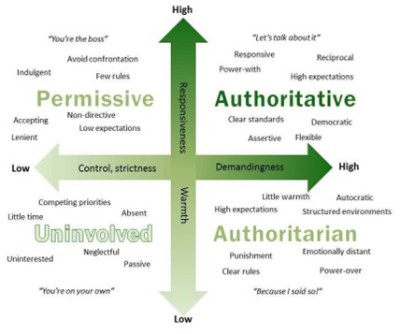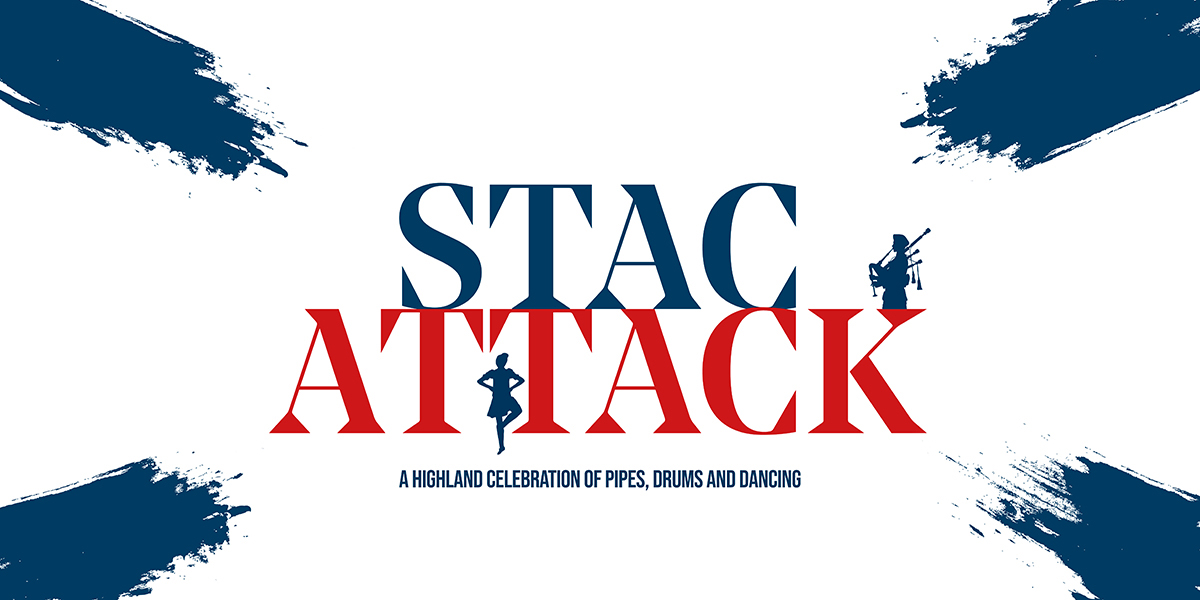
You are logged in as
Logout
You are logged in as
Logout
"As a school we work hard to provide all students with opportunities to explore new experiences through our co-curricular programme and support their learning with appropriate structure and clear expectations, while developing creative and critical thought through discussion and debate."
Dear Parents and Caregivers
Kia ora koutou katoa
The second half of Term 2 has been packed with various sporting and cultural events, while at the same time, senior students have been juggling the demands of assessments and internals. In a school where there is so much choice available to students, it can be difficult to manage competing demands and priorities. I hope that all will take advantage of the coming term break to take some well-earned time out from routines, timetables and ‘to-do’ lists.
Recently I and other staff have witnessed a number of student speeches in a variety of contexts. The Festival of the Spoken Word speech finals, the Ngā Manu Korero speech competition, Prefect Assembly morning comment, chapel address from two students on our DPR Value, Faith, and speeches from recent Old Collegians at our Girls’ and Boys’ Assemblies on It is OK not to be OK and Managing Life Beyond School.
On all of these occasions, I was impressed with the maturity and thoughtfulness of our young people. There is no doubt that as they move to life beyond school our teenagers have a challenging world to navigate. The ‘VUCA’ world – one which is volatile, uncertain, complex, and ambiguous, requires young people who can make sound judgements based ,on knowledge, consideration of different perspectives, and understanding the consequences of decisions and actions.
Schools are a place where students are encouraged to try new things and test their perspectives. Sometimes they will make mistakes and their judgement will let them down. They are, after all, teenagers. It is from these mistakes that they will readjust their perspective, respect alternative viewpoints, and learn the value of collective rules and boundaries, which are important for communities to thrive.
Last week I spoke at an ISNZ (Independent Schools New Zealand) leadership conference on DEI – Diversity, Equity and Inclusion. In preparing for this talk I considered the diverse perspectives of the people who make up our St Andrew’s community. These include different thinking and learning styles, ethnicities, religions, perspectives, experiences, cultures, skills, gender identities, neural pathways, sporting and cultural preferences, social groups, and economic realities. For both our staff and students it can be a challenge to balance that which is common ground with the desire for individualisation. As a community we are on the necessary but difficult journey to be more inclusive and embrace diversity while still being clear on our collective values and common ground.
As a school we work hard to provide all students with opportunities to explore new experiences through our co-curricular programme and support their learning with appropriate structure and clear expectations, while developing creative and critical thought through discussion and debate. We also aim to provide scope for freedom of thought and expression within appropriate boundaries. By encouraging students to discover their true selves in a way that shows respect for others and our school, we can make St Andrew’s College a safe place for all. Thank you for the way you support teachers and staff in their collective efforts for the College to be the best we can be.
Best wishes for a good term break.
Kia noho haumaru koutou katoa (may you all stay safe).
Christine Leighton
Rector

It has been extremely busy and successful in terms of celebrating what is special about St Andrew’s College; Prefects Assembly, Boys’ and Girls’ Assemblies, Ngā Manu Kōrero speech competition, Interschool exchanges, and our extensive co-curricular programme.
Supporting the students in their co-curricular activities continues to be a good reminder of why I chose to be an educator, seeing the students at their best and taking part in something they are passionate about is always so uplifting. Many of our top sports teams are once again tracking well this season. The Girls’ basketball, football, and hockey teams remain unbeaten and are strong contenders to progress to the playoffs next term. The Girls’ A netball team, the 1st XV rugby, 1st XI Boys’ hockey, and the Boys’ A basketball teams are still in contention for their playoffs.
I always make a real point of visiting classes at this time of the year. I am so grateful that the students are so willing to share their work with me and engage in a conversation about what is exciting to them about their learning. The quality of relationships that exist between the teachers and their students is making a real difference in how students feel about learning and school.
The first set of reports will have been made available to you in the last month. Your child’s teachers have spent a considerable amount of time providing feedback on what is going well and what the next steps need to be. Can I please encourage you to have a conversation with your child on how they may learn from the feedback and where appropriate make some changes.
Follow-up meetings to the tutor conferences held at the beginning of the year are scheduled for Tuesday 18 July. You will receive information about these this week, and the meeting times will be booked in the same way as they were at the beginning of the year. Please note that you will have the option of having an online or in person conference. The conferences provide a valuable opportunity to review how the first two terms of the year have gone, to reflect generally on the goals that were set, discuss academic progress and well-being, and share any persistent problems or issues. It is expected that the students will take the lead in these discussions, but we also value your input. The key goal is to ensure that your child feels supported. Classes will begin again on Wednesday 19 July.
We have been hit very hard this year with student illness, especially with flu. This has the potential to disrupt the learning of your child and their ability to achieve their full potential in assessments, especially in NCEA. We ask that you please urge your child to use the College’s NCEA assessment extension process when they are/have been ill, and they believe their performance may be impaired in some way. Please note that a medical certificate needs to be supplied as part of this process. I would like to also ask you to let the College know as soon as possible if your child is going to be away from school and provide a specific reason for their absence.


I have been very pleased and delighted with the way the students are wearing their uniform at school. Only minor issues persist, such as dirty shoes and unshaven faces for some of the boys, and not wearing the correct socks and too many earrings for some of the girls. Please remind your child they must leave the school grounds in school uniform with their blazers on. The only exception to this is if they are going to a sports match.
Please encourage your child to balance the work set by their teachers and time for relaxation during the school holidays. I hope you all enjoy having your children at home for the next couple of weeks.
Evert van Florenstein
Head of Secondary School
Deputy for Rector

JULY
30 End of Term 2
JULY
18 Term 3 starts
18 Year 9–13 Parent-Student-Tutor Conferences – No Secondary School classes
19 Secondary School classes resume
22 Senior College Formal
30 StAC Attack
Please view the fixtures on the College intranet for more upcoming events. The intranet is updated daily.3

Last Thursday two prefects spoke in chapel on what our Developing Positive Relationship value of Faith meant to them. Kavanah Lene and William Russell took up this challenge after I presented the opportunity for the prefects to have a voice in a chapel service. I asked Kavanah and William to write a summary of their presentation for me to publish in On Strowan. I am grateful for their voice and courage to stand up in front of their peers and speak with such authenticity on their ideas and beliefs around the value of Faith.
Kavanah Lene – Faith is loving and respecting all people, regardless of their differences. Differences like appearance, what type of phone they have, what they wear, their sexuality, religion, social class, and even what school they go to. My belief is that we are worthy of love and respect because we are all created wonderfully by God and deeply loved by Him. As StAC students our values are Truth, Excellence, Faith, Creativity, and Inclusivity. We can say that we are true to these, but what good are all these beliefs and values if we cannot apply them in our everyday life? If people cannot see them as a part of who we are and a part of our character? These beliefs can also be applied to factors like school, work, or sport. We can believe in our abilities to get an E in an internal, meet due dates in work, and play well in a sports game, but if I am not consistently training or studying outside of school hours then the belief I have in my own ability is rendered useless. The apostle Paul delivers this message perfectly when he says, “Faith by itself, if it is not accompanied by action, is dead.” So, I would like you to reflect on yourself today. Ask yourself, is your faith alive or dead? Will people be able to know the values of your character by your actions alone? Are you acting out your beliefs and stepping out in faith to do what you know is right? Faith is key in life. Whether it is faith in yourself, faith in your dreams, faith in your teammates, co-workers or classmates, faith in your friends and whānau, or faith in God. We all need faith in action to truthfully live.
William Russell – In my speech, I covered a broad range of aspects of the value of faith. While writing it I wanted to ensure the speech could apply to everybody, while incorporating my own personal experiences and outlook. I spoke on my past personal experience with faith and an ultimate belief that any problems or challenges can always be resolved. I indicate that the first step I want people to take is to simply believe. Focus not on the problem but look past it. Throughout all our lives we will experience struggles – no matter if you are a boy or a girl, no matter where you come from, and no matter what you believe in. We all meet battles and setbacks in so many walks of life. In Men’s Health Month, where we reflect and focus on mental health, I wanted to talk about an aspect of our lives which many of us seem to hold less valuable today. In the speech I referred to 2 Corinthians 5:7. “For we walk by faith, not by sight.” Referencing this, I try and allude to the idea that believing will always be paramount over a short-minded attitude where we focus on the problems and get wound up on the small things. This reference to Corinthians 5:7 is also supported in my speech where I say “I can nearly guarantee that having faith brings about a positive outcome in whatever situation you are in.” When having faith and looking for the best in situations I referenced Muhammad Ali, “It’s lack of faith that makes people afraid of meeting challenges, and I believed in myself.” Here, I wanted to emphasise that you can apply this to any situation in life. Give things a go, believe, and have faith.
I wish you all a very restorative and restful holiday with your wonderful whānau and friends.
Blessings
Rev. Paul Morrow
College Chaplain

As educators, we believe that the path to success for our students lies in fostering their sense of responsibility and ownership over their own learning. In today’s rapidly changing world, it is crucial that students become active participants in their educational journey. By instilling a sense of ownership, we empower them to develop essential skills and attitudes that will serve them well beyond the classroom walls.
Taking ownership of learning means more than just completing assignments and studying for tests. It involves students actively engaging in their education, setting goals, making decisions, and reflecting on their progress. Here are a few reasons why this approach is vital for your child's development:
At St Andrew’s College, we are committed to creating an environment that encourages students to take ownership of their learning. We invite you, as parents, to support and reinforce this mindset at home. Encourage your child to ask questions, explore their passions, and take responsibility for their academic journey. Together, we can empower our students to become confident, self-directed learners prepared to thrive in an ever-changing world.
We start next term with a wonderful opportunity to reinforce this approach with Parent-Student-Tutor Conferences on Tuesday 18 July. All students have been working on a reflection and goal-setting task in preparation for these interviews. They have been asked to reflect on their mid-year reports and set WOOP goals for the remainder of the year as well as complete a reflection task that links to our well-being framework, PERMA-V. I strongly encourage you to engage in this process and be involved in these conferences.
Term 2 has been an opportunity for Middle School students to really get involved in the life of the College. It is my hope that students have established positive friendships, are involved in the range of co-curricular opportunities, and are enjoying their learning in the classroom. Term 2 always presents its challenges, whether it be academic loading, illness, or simply dealing with the colder weather. However, I hope that students can keep themselves in a good space by staying positive and getting stuck in. Well done to all for their involvement.
I wish everyone well for the upcoming holidays and I am looking forward to seeing you all in Term 3 when classes start on Wednesday 19 July following the conferences on Tuesday 18 July.
Matt Parr
Head of Middle School

Kia ora koutou
In the last couple of school days, we have celebrated the best of what our Senior College offers, with the Prefect Assembly and the mid-Winter Christmas (organised by the Senior College Council).
The recent assembly was a great success, with the prefect team hunting for the hooded mercenaries who had kidnapped the four Heads and Deputies and stole the Head Prefect book. They brought cleverly filmed video, vibrant dance numbers, the annual ‘Formosal’ (where a member of the team asks an unsuspecting student to come to the Senior College Formal), and the Team of the Week Challenge, run between representatives of the 2nd XV rugby team and the Girls’ 1st XI hockey. The Morning Comment, from Lauren Whittaker, was superbly written and delivered. It challenged us to reflect on whether we have a finite or an infinite perspective on the game of life, and is well worth making the time to read – click here.
Students from the Senior College Council came into school on Sunday to decorate the common room and atrium areas with streamers, balloons, fairy lights, window art, and a Christmas tree. The aim was to provide a winter boost to students as we move into the last week of term and battle the urge to stay in bed every morning!
This is Senior College life at its best, with students stepping up to build on our philosophy of interdependence or living in community. It is such a privilege to have group ‘happenings’ where we can come together and celebrate, and where the role of school as a community builder can be acknowledged. Congratulations to the prefects and the council for all their hard work.
I hope you all have a chance to relax and recharge in some way over the school holiday period. It has been another challenging but productive term.
John Ruge
Head of Senior College

Next term begins with a teacher only day (no classes) on Monday 17 July, followed by Parent-Student-Tutor conferences on Tuesday 18 July. Classes for all Secondary School students begin on Wednesday 19 July. Students must be at school by 8.30am for tutor group meetings.
Please note that Senior College students will have a late start on Friday 21 July, with classes starting at 9.00am.
Boys need to be clean shaven every day. Frequency of shaving will vary for individuals, but the basic rule is the same. If boys are not clean shaven at school, then we have a supply of razors and shaving foam in the Senior College office.
Girls may wear one plain stud in each ear lobe. Nail polish and jewellery are not permitted.
If your child drives to school, either regularly or intermittently, then they must register their vehicle with the office. This is regardless of whether the student owns the car. We have had several instances this year where we have been able to help students avoid a flat battery or being towed because they had registered a vehicle with us. Please note that:
Thank you for your help with this.
.
The Formal is now only a few weeks away and the Senior College Council have been working very hard to organise what promises to be an amazing evening. A quick reminder about logistics and expectations for the evening:
The College does not endorse any pre- or post-Formal functions. Where they do occur, we expect that all functions are by invitation only and are hosted and supervised by responsible adults. If you intend to hold a function it would be helpful if you could email me at JRU@stac.school.nz to let me know the details.
You are warmly invited to join us at this service. Students must attend at least three chapel services each year. The only exception is if a student is representing the College at another event and has been excused from this service and from a catch-up requirement. Students should wear full uniform, including blazer, and should be at the Chapel by 6.45pm at the latest for roll checks.
Our school examinations are very important for students as a practice run for NCEA externals and as the basis for derived grades. This year they will be held from Wednesday 6 – Thursday 14 September (Weeks 8 and 9 of Term 3). There will be more detailed information for you in the next edition of On Strowan.
As we come to the end of a busy Term 2 for the co-curricular programme, it is pleasing to reflect on our high participation rates and some significant achievements. At times the weather has proved to be a challenge for outdoor sport and the students are to be commended for the way they have adapted to the challenges we have faced with this. In recent weeks we have had many sporting and cultural highlights across the co-curricular programme, including two sports exchanges.
We are looking forward to another winter Tournament Week in Term 3 where 18 teams from eight sports will compete in a number of tournaments from Auckland to Invercargill.
Mark Lane
Director of Sport and Cultural Activities

Throughout the year I have worked my way around a lot of the co-curricular sports and activities that take place during the week and over the weekend. It has really been pleasing to see the commitment of our young people and the support they have from their families. With that in mind, I was reading a wonderful article that resonated with me and thought that I would share it with you. I hope you enjoy it.
In 2015, Chris Harwood and Camilla Knight published an academic paper titled Parenting in youth sport – a positioning paper on parenting expertise. In this paper Harwood and Knight proposed that there are six key core competencies that expert sport parents demonstrate in order to boost the chance of their children: achieving their potential in sport; enjoying and consequently staying involved in sport; and benefiting from sport’s potential to support positive development outcomes.
Parents support children in sport in various roles and ways. Harwood and Knight have outlined the following as the six key competencies that inform sport parent expertise:
Armed with the right knowledge, parents not only support their children in playing sport, but also help them to choose a sport offering that will best suit them.
This is important, as parents (of younger children in particular), are well placed to consider the fit between their child and a sport (i.e., will a child love a sport?). When considering fit, parents need to consider the biological, psycho-social, and emotional needs and wants of their child. Different sports will have attributes that inherently fulfil young people’s needs differently (team sport vs individual sport, contact sport vs non-contact, etc.). Also important for parents to consider is the respective contexts, communities, and settings of the sport (e.g., how much emphasis does a club/school place on competition?).
The affinity a child may develop for a sport will then ultimately have an impact on how long they will remain involved in a sport. Before signing up for sports, parents should first have conversations with their children, understand and listen to them around what they want to do and why.
While parents are well placed to think about the fit between their child and a given sport, supporting children to find the sport that best fits them is complex. This is why it’s beneficial for parents to encourage their children to be exposed to a range of sports early on. Other key focuses parents should look out for include: the prioritisation of fun; that coaching is predominantly done through play or games; that selection and participation opportunities reflect a long-term focus on development; and competition is used in a developmentally appropriate manner (i.e., format of sport is appropriate for age and stage of child, and level of emphasis on winning is appropriate for age and stage of child).
Expert sport parents take time to learn the trade of being a sports parent. Underpinning this includes:
All this active support should reflect the child’s enjoyment and self-esteem in their sport.
As they progress, some youngsters will naturally want to reduce their range of activities to take their chosen sport more seriously.
In those cases, it’s up to parents to seek out the right coaching and training programmes to enable their children to do that while still having fun.
Parenting styles have an important role to play in creating a healthy emotional climate for children.
Parenting styles are reflected in the way a parent interacts with their child, and the parents’ values and expectations. Parenting styles can be mapped into four types along two axis representing level of responsiveness and warmth, and level of demandingness and control.

An organisation of four parenting styles based on two parental dimensions: the level of parental control on the x-axis and the level of parental warmth on the y-axis. Source: www.psychologyinaction.org
Research has shown that generally greater positive outcomes are achieved in youth sport when the experience is underpinned by parents demonstrating an authoritative parenting style.
In simple terms, authoritative parenting is autonomy-supportive. This style of parenting provides the right balance is transparent structure to children, with flexibility for children to have high levels of self-determination to support their growth and development.
Examples of this might look like:
The need for parents to supervise and/or get their child to and from sports means they are frequently on the sidelines.
But often parents’ heightened emotions get the better of them and that has a detrimental effect on our children.
As studies show, we know parental reactions are often the result of empathy for their child, the emotional intensity of the game, and the perceived knowledge and experience of sport.
Children’s emotions, opponent behaviour, and parent interference are often sources of frustration too.
Any anger usually comes down to perceived unjust behaviours from coaches, referees, uncaring behaviours from coaches, athletes, and other parents and perceptions of coach or referee incompetence.
An example of this is a parent who stormed onto a rugby field during a tournament and hurled abuse at the referee after a call he didn’t agree with, in front of the two young teams and everyone else on the sidelines.
Managing such emotions is key when it comes to supporting children and it will enhance the experience for all involved, not put them off. It also serves to model back to children good emotional intelligence.
It’s about mastering that whole range of emotions, for instance the disappointment or worry they feel or share with their child when their child is upset or disappointed, or the embarrassment they feel as helpless bystanders if their child is underperforming or behaving poorly.
As studies show, youth prefer support without pressure, which means parents need to avoid providing technical or tactical advice, ensure comments focus on effort and attitude rather than performance or outcome, and give practical advice only to help them prepare and recover from games.
It’s a matter of respecting sideline etiquette and remaining positive – cheer, be encouraging during and afterwards, give praise and empathy.
For those who really struggle to adjust, ask for tasks at competitions, and take up opportunities to socialise and become better educated around the values and benefit of sport without the focus on winning.
If parents can control their own emotions and behave in manners appropriate for the sport, it will impact on their own enjoyment.
An emotionally intelligent sport parent is one who understands their child’s emotional needs, appreciates values such as effort, sportsmanship, independence, honesty, composure, and constructive feedback, and demonstrates behaviour that role models these values to their child.
Parent relationships with children, coaches, and other parents is vital when it comes to creating a positive youth sport environment.
When children participate, they interact with a range of people, including other children’s parents, coaches, officials, and organisers, and it’s no different with parents.
The quality of those relationships comes down to a number of factors outlined by players in one study – self-esteem, enhancement and supportiveness, loyalty, things in common, companionships and play, and how you deal with conflict.
In relationships where those factors were present, it resulted in higher levels of player enjoyment, perceived competence, self-determination, motivation, and lower stress levels.
Parents in the same space developed positive coach–parent relationships, built trust and understanding, and appreciation for their work.
In fact, through positive interactions and behaviours parents can minimise a coach’s stress by doing the simple things well, things like accepting the coach’s authority, not undermining their leadership, particularly in front of the athlete, and supporting the coach behind the scenes without interference.
It’s also about developing knowledge of the sport, listening to the coach on various issues such as schedules, competition, rest, and recover, so the child gets the maximum benefits.
Healthy relationships with other parents are also vital and can diffuse situations.
Angry interactions, interference, shouting, cheating, and negative comments are all stressors for parents – they inevitably damage relationships and impact negatively on children’s experiences and relationships with other children.
Instead foster healthy parent-to-parent relationships, create a social network where they can feel a part of a sporting community, and have their own social needs met at trainings and games.
It will allow parents to become aware that developing and maintaining such relationships are beneficial for their children, other children, coaches, parents, and themselves as well.
While parents can influence the youth sport environment, so too can the youth sport environment influence parents.
Financial demands can affect personal, social, and broader family life choices, while organisational demands may include finance and time commitments which can upset the sport–work and sport–family balance.
It can even create strained relationships at home between parents and siblings, resentment, and guilt due to lack of attention of non-sport siblings.
Coaching behaviour, club, and national body processes can cause stress too – lack of communication, lack of feedback from coaches, funding criteria, selection decision, and the pressures of talent development systems can all contribute.
Developmental demands can include decisions around coaches, training and programmes, and concerns a concerted effort in one sport may mean they miss out on other hobbies and activities which, in turn, causes uncertainty of their child’s future while trying to manage sport and school pressures.
Such demands can affect a child’s ongoing development, decision-making, support needs, and even career transitions down the track.
It’s vital that parents develop and apply various coping skills and strategies to manage these diverse demands.
When they successfully do this, they strengthen their ability to help their child navigate through the demands and uncertainties of sport.
As children grow and develop through sport, parents’ roles, experiences, demands, and responsibilities change along the way.
It’s up to parents to recognise and successfully negotiate their shifting roles as children transition through the stages of athletic development.
As a child navigates first-time challenges parents may focus on attitude, value, and character development as they begin their role as educator and supporter.
When children transition to the specialising stage and involvement intensifies, parents must also transition.
It’s a time when parents may become more involved at an organisational level, where logistics come into play, and where providing emotional, motivational, and moral support to their child is most important.
With a child’s growing independence, it’s even more important to keep communication lines open around decision making, to ensure demands of a potential career and education are made.
At that stage, coaches begin to take on more expert support roles and parents more provider roles, and in the background.
Negotiating this shift can be stressful and challenging, as parents are no longer close to the centre of their child’s sporting world.
At the end of the day, it’s up to parents to adapt to provide that unconditional support and a safe haven for their young adult as they develop their independence and pursue their sporting and life goals.
Sporting parents face a whole lot of responsibilities around managing and supporting the needs of their child, managing themselves and their well-being, fostering and managing relationships, and dealing with organisational demands and processes within the youth sport environment.
While parents form a necessary part of the fabric of youth sport, not everyone when they become involved in sport possesses the knowledge, skills, or understanding that underpin ‘sport parenting expertise’.
It’s important for clubs, organisations, and coaches to help build the competencies and skills of parents, to ensure a healthy sport experience and environment is maintained.
For these organisations, the likes of online resources, workshops, or meetings can help parents understand, gain confidence, and expertise in their role.
Working with coaches on relationship management and parents on relationships with others is also key.
Being proactive, educating and supporting parents will go a long way to developing excellence and expertise in sports parents, and create positive experiences for children at the same time.
Term 3 is going to be a very exciting term for the Pipe Band! Preparations are well underway for the A Band trip to Scotland in August to compete at the World Pipe Band Championships. The band will depart New Zealand on Sunday 6 August. There is an action packed itinerary in place for the band with lots of activities and invaluable experiences. The band will watch the Royal Edinburgh Military Tattoo (with behind the scenes tour), visit Stirling Castle, Wallace Monument, and have the opportunity to perform in the grounds of St Andrews Cathedral ruin. The St Andrews Cathedral performance is a very proud moment for every Pipe Band member, staff, parent, and supporter. The band will also compete at North Berwick Highland Games, Perth Highland Games and finally, the World Championships on Saturday 19 August.
The Pipe Band are also showcasing StAC Attack at the Christchurch Town Hall – James Hay Theatre on Sunday 30 July. The event will have well over 100 performers of bagpipes, drums, and Highland dancers.
Experience the thrilling sounds of StAC Attack 2023! A St Andrew’s College Pipe Band event at the prestigious Christchurch Town Hall – James Hay Theatre, this highly anticipated showcase guarantees an unforgettable evening of traditional Scottish entertainment and an opportunity to see our A Band in action before they travel to Scotland to compete at the World Pipe Band Championships in August. Immerse yourself in the rich harmonics of the bagpipes, the infectious beat of the drums, and the flair of the Highland dancers as they take the stage. With talented St Andrew's College students from Years 4–13 showcasing their skills, StAC Attack promises to be an action-packed performance.
With special guests New Zealand Champion Pipe Band – Canterbury Caledonian Society.
When: Sunday 30 July, 5.00pm–7.00pm
Where: In the Christchurch Town Hall – James Hay Theatre
Tickets: Adults $49 | Children $29

The Performing Arts Departments have had an incredibly busy term with the Senior Production, events for choir, a choir tour, rock groups, jazz groups, orchestra performances, chamber competitions, dance classes, cultural showcase, and Middle School Production auditions.
A huge thank you to all staff involved in providing these opportunities and supporting the students in arts learning.
All events can be read about in Rector’s Comment and on the St Andrew’s College Music Department Facebook page.
JULY
14 July – Middle School production rehearsals 9.30pm-12.00pm
TERM 3
21 July – Play It Strange Lion Foundation
19–22 July – Jazz Tour
29 July – Ara Jazzquest (Big Band and ensembles)
Please view the fixtures on the College intranet for more upcoming events. The intranet is updated daily.
Visit the College intranet, StACNet >